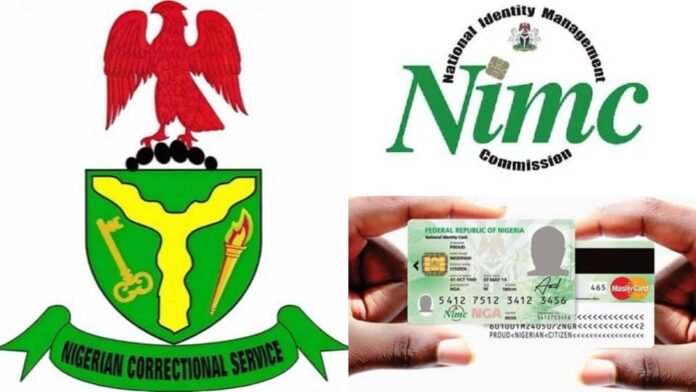The Nigerian Correctional Service (NCoS) has announced a significant milestone in its ongoing National Identification Number (NIN) registration initiative. As of June 7, 2025, a total of 59,786 inmates, representing approximately 74% of the country’s total inmate population of 80,879, have been successfully enrolled in the National Identity Management Commission (NIMC) database. This achievement underscores the collaborative efforts between the NCoS and NIMC to integrate inmates into the national identity system, enhancing security and facilitating post-incarceration reintegration.
Background
The Nigerian Correctional Service is tasked with overseeing the safe custody and rehabilitation of inmates within the country’s custodial centres. In a bid to modernize the correctional system and align with national digital inclusion goals, the NCoS partnered with the National Identity Management Commission to register inmates for the National Identification Number. This initiative, approved in January 2025, aims to integrate inmates into national development plans, enhance their security, and facilitate their identification in case of jailbreaks. The collaboration reflects the federal government’s commitment to inclusive governance and national development.
Progress of the NIN Enrollment Drive
As of June 7, 2025, the NCoS reported that 59,786 inmates have been successfully enrolled in the NIMC database, accounting for 74% of the total inmate population. The registration process is actively ongoing across all custodial centres, with mechanisms in place to ensure its seamless completion. The NCoS has refuted media reports suggesting that the NIN registration exercise has not commenced in all custodial centres, describing such claims as misleading and inaccurate. This clarification underscores the NCoS’s commitment to transparency and effective communication regarding the initiative’s progress.
Significance of the NIN Enrollment for Inmates
The enrollment of inmates into the NIMC database holds several key benefits:
- Enhanced Security: Accurate identification of inmates reduces the risk of impersonation and aids in the management of records.
- Access to Services: Enrolled inmates can access various governmental services, including healthcare and financial services, both during and after incarceration.
- Post-Release Reintegration: Having a NIN facilitates the reintegration of former inmates into society by providing them with a recognized identity for employment, education, and other opportunities.
- National Development: The enrollment of inmates into the national identity database contributes to the broader goals of national development by ensuring that all citizens and residents are captured in the national identity system.
Challenges Encountered
Despite the progress made, several challenges have been encountered during the NIN enrollment process:
- Logistical Issues: Coordinating the enrollment process across numerous custodial centres posed logistical challenges, including the need for adequate infrastructure and trained personnel.
- Public Perception: Initial media reports suggesting that the NIN registration had not commenced in all custodial centres were later debunked by the NCoS, highlighting the importance of accurate reporting.
- Technological Barriers: Ensuring consistent internet connectivity and access to NIMC’s registration platforms in remote facilities was a significant hurdle.
Future Outlook
The NCoS aims to complete the NIN enrollment for all inmates in the coming months, with continuous updates provided to the public. Plans are underway to extend the enrollment process to other marginalized groups, ensuring comprehensive national coverage. The success of this initiative may influence future policies on digital inclusion and identity management within the country.
The NCoS NIN drive has made commendable progress, with 74% of inmates enrolled in the national identity database. This initiative not only enhances security and service delivery within custodial facilities but also contributes to the broader goals of national digital inclusion. Continued support and collaboration between NCoS, NIMC, and other stakeholders are essential to ensure the successful completion and sustainability of the NIN enrollment for all Nigerians.


